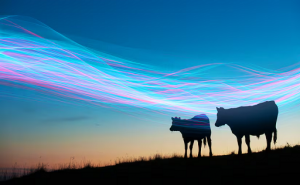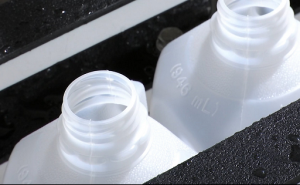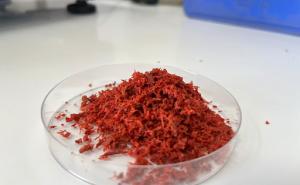
The food tech company caught the attention of The Coca-Cola Company last year, receiving an investment of $2 million from Coca-Cola’s Central Bottling Company arm. Now, Wilk –previously called Biomilk – announced that it has received US patent approval to begin its distribution nationwide. The innovative company developed a method of replicating both animal milk and human milk through milk-producing mammary cells.
Wilk will receive the patent approval for Methods and Systems for in-Vitro Milk Production from the US Patent and Trademark Office. The approval announcement means that the company will become an exclusive patent holder for the technologies and research processes that create its cultured milk and breastmilk products. The patent will allow the company to begin developing innovative milk products that perfectly replicate real breastmilk from human mammary cells and dairy milk without cows.
“We are delighted to have been granted this patent approval, the culmination of years of intensive investment in research and development, and the confidence it displays in Wilk’s processes for producing cultured cell-based milk,” CEO of Wilk Tomer Aizen said. “This will help to further establish our reputation as a leader in the field of cell-based milk production while bringing us one step closer to the ultimate goal of revolutionizing the dairy industry.”
Alternative dairy is reaching unprecedented limits, especially as cultivated meat begins to receive new attention from consumers and investors worldwide. The cultured dairy market is currently projected to reach $58 million by 2027, increasing at a growth rate of nearly 5 percent. Alongside Wilk, companies worldwide including Perfect Day and Those Vegan Cowboys have put money into cell-based milk and dairy production. But now, Wilk is pushing into the top tier of alternative dairy producers.
“Our proprietary technology is based on more than ten years of research, and with this patent, we can solidify our processes and continue down the path of making milk ingredients available to all in a completely sustainable manner,” Co-founder and Chief Technical Officer of Wilk Nurit Argov-Argaman told NutritionInsight.
Initially launched as Biomilk in 2020, Wilk aims to attract customers that care about environmental issues but feel reluctant to omit milk from their diets completely. Most uniquely, Wilk also focuses on breastmilk production, tapping into a relatively scarce market. By producing sustainable breastmilk alternatives, the company aims to provide a sustainable alternative to dairy-based formula, complete with all the nutrients that children need from traditional breastmilk.
The company claims that its now-patented technologies and manufacturing methods will help reduce greenhouse gas emissions, preserve natural resources, and maintain all the nutritional value of dairy products. The sustainable edge intends to persuade consumers who feel intimidated by a full-fledge plant-based diet but care about environmental concerns stemming from dairy production. The patent will provide long-term protection of Wilk’s intellectual property, establishing them as a new major player in the alternative milk market within the US.
“The ‘W’ in Wilk stands for ‘WE’ and represents how, by collaborating with industry partners, we can all work together to establish sustainable means of production that can guarantee the continued supply of milk and dairy-based products for future generations,” Aizen said.























